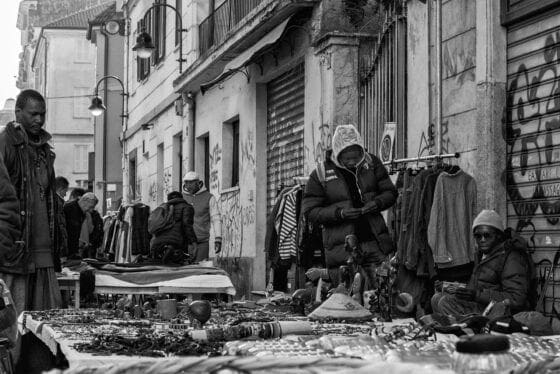Father Daniel Pilario proposed to the Visitors of the Congregation of the Mission, gathered in Manila, a careful and analytical reflection on the phenomenon of migration, which concerns not only our era, but which also dates back to the early days of human history.
Population movements, due to poverty, wars, natural catastrophic events, and this time of ours, in which episodes of war, devastation, and political persecution are more serious, affect all the continents. The number of refugees has grown enormously.
Everyone is aware of the daily flight of Venezuelans to other Latin American countries and the sad events that concern the southern border of the United States, where migrants sometimes risk their lives to achieve their dream.
In Europe, the migration of peoples, mainly from Africa and Asia, is accompanied by growing xenophobic attitudes that sometimes result in episodes of gratuitous and unjustified violence. Some political parties, “riding the wave” of discontent, even through the massive use of social media, convey messages full of hatred to an increasingly numerous public.
If Saint Vincent were present today, would he remain a motionless spectator? In the presence of boats that sail the seas of hope, would he approve the government measures that promote the rejection of migrants?
Saint Vincent knew the refugees who were fleeing the Lorraine region, where the carnage, looting, and massacres by French, Swedish, and mercenary armies had made those lands inhospitable. Because of this, people wandered and fled to avoid death. Our founder did not avoid the desperate cry of the poor, but felt that situation as a call from God to welcome, protect, and guard the refugees from Lorraine for whom thousands of meals a day were served at Saint-Lazare.

Saint Vincent, in our days, would be close to refugees to welcome them and love them in an affective and effective way and would run to represent their pain in the institutional centers that today, as then, seem deaf to the motives of the destitute.
Our choice is to “paddle upstream,” to once again conjugate the verbs of love aloud, choosing to love God with the strength of our arms and the sweat of our brows. It is, therefore, necessary to make our communities hospitable places, houses with open doors, spaces in which every person can feel at home and where the most fragile people have a concrete experience of the God of love. Following Christ the evangelizer of the poor today is also taking care of numerous groups of migrants as occurs in London, Dublin, and Vienna in the works of the confreres, and to open the doors to refugees as happens at the Samaritan Inn promoted by the confreres of Catania.
Paddling upstream is promoting a culture of tenderness in a context that today appears more fearful and violent. It is time, therefore, to announce, with competence, through the new means of communication, that Jesus, even today, chooses the least and the last to confound the strong and that the Church cannot but bear witness to the Gospel of Charity, even when circumstances make it seem like a “good thing.”
The courage and determination of Saint Vincent push us to be true disciples of Christ, evangelizer and servant of the poor.
Valerio di Trapani, CM
Provincial Assistant
Province of Italy

